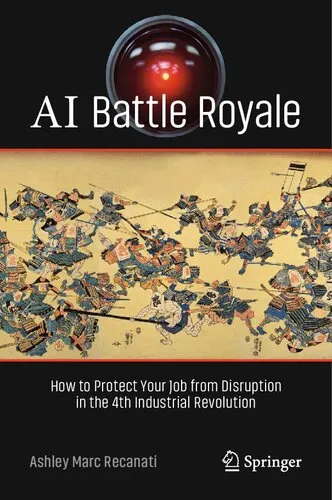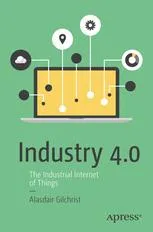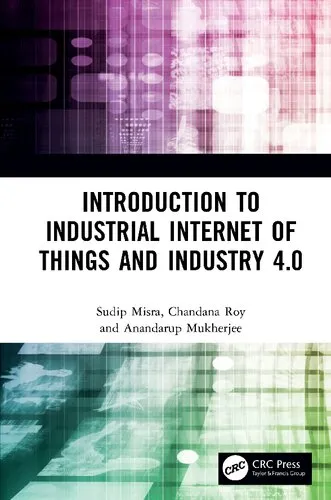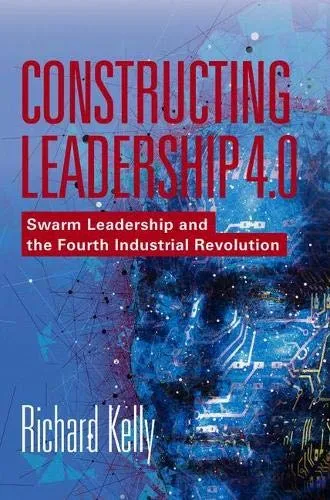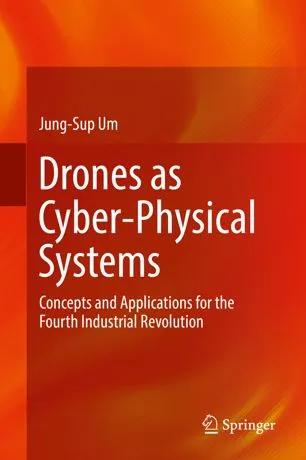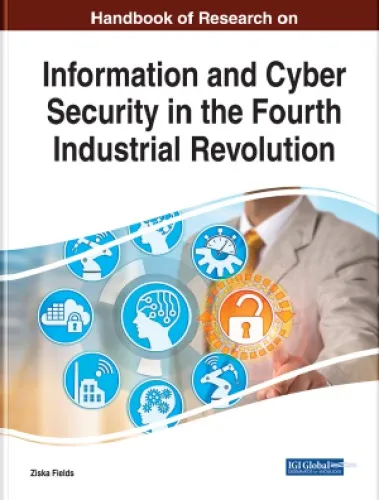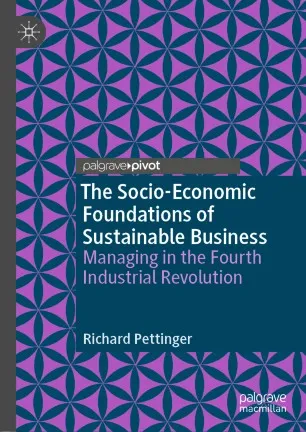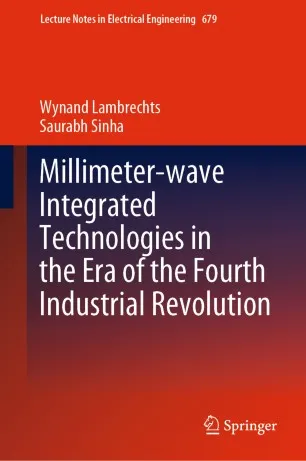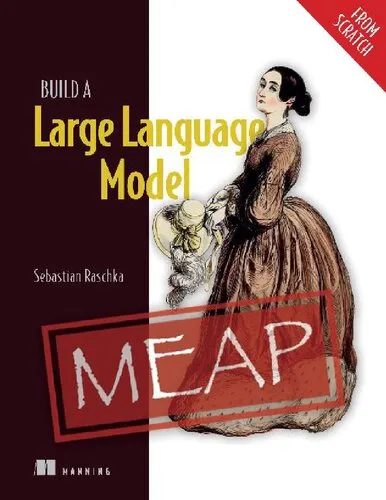The Workplace of the Future: The Fourth Industrial Revolution, the Precariat and the Death of Hierarchies
4.3
بر اساس نظر کاربران

شما میتونید سوالاتتون در باره کتاب رو از هوش مصنوعیش بعد از ورود بپرسید
هر دانلود یا پرسش از هوش مصنوعی 2 امتیاز لازم دارد، برای بدست آوردن امتیاز رایگان، به صفحه ی راهنمای امتیازات سر بزنید و یک سری کار ارزشمند انجام بدینکتاب های مرتبط:
معرفی کتاب
کتاب "The Workplace of the Future: The Fourth Industrial Revolution, the Precariat and the Death of Hierarchies" نوشته 'جون-آریل یوهانسن'، یک بررسی جامع از آینده محیط کاری در زمینه انقلاب صنعتی چهارم است. این اثر به تحلیل چالشها و فرصتهایی میپردازد که کارگران و کارفرمایان در دنیای سریعالتغییر فناوری با آن روبرو هستند.
خلاصه تفصیلی کتاب
این کتاب به بررسی سه موضوع اساسی میپردازد که با گرد هم آمدن آنها محیط کار آینده تعریف میشود: انقلاب صنعتی چهارم (The Fourth Industrial Revolution)، طبقه پرکار (Precariat) و مرگ سلسلهمراتبها (Death of Hierarchies). انقلاب صنعتی چهارم به تحولات اساسی فناوری در زمینههایی مانند Artificial Intelligence، روباتیک و Internet of Things اشاره دارد که به شدت ساختارها و دینامیکهای شغلی را تغییر دادهاند.
این کتاب همچنین به ظهور طبقهای جدید از کارگران به نام "پرکار" اشاره میکند — گروهی که امنیت شغلی کمی دارند و اغلب در شرایط عدم قطعیت کار میکنند. پرکارها به فعالیتهایی مانند کارهای موقت و فریلنسری وابستهاند و اینگونه زندگی کاری متمایزی را تجربه میکنند.
نکات کلیدی
- تشخیص روندهای شکلدهنده به آینده محیط کار و تحلیل اثرات فناوریهای نوین.
- چگونگی تطابق کارگران و کارفرمایان با تغییرات پیچیده محیط کار.
- یادگیری نحوه مدیریت مؤثر جمعیت پرکار و فراهم کردن امنیت شغلی بیشتر برای آنها.
- بررسی چالشهای مرگ سلسلهمراتبها و تحول در ساختارهای سازمانی.
جملات معروف از کتاب
“انقلاب صنعتی چهارم نه تنها تغییر میدهد که چگونه کار میکنیم، بلکه اساساً محتوای شغلها را نیز دگرگون میکند.”
“طبقه پرکار نمادی است از چالشهای زندگی کاری ناپایدار، اما همچنین منبعی است برای نوآوری و خلاقیت.”
چرا این کتاب مهم است؟
این کتاب با ارائه تحلیلهای عمیق و بینشهای کارآمد، ابزارهای لازم برای درک و مدیریت تغییرات بنیادی در محیطهای کاری مدرن را ارائه میدهد. دانشجویان، محققان و حرفهایها در زمینه منابع انسانی و مدیریت میتوانند از دیدگاههای ارائه شده بهرهمند شوند و به پذیرش و مدیریت بهتر دنیای کاری جدید کمک کنند. این اثر نهتنها به تحلیل میپردازد بلکه راهحلهایی برای تطابق با این تغییرات پیشنهاد میکند.
The Workplace of the Future
Exploring the profound transformations ushered in by the Fourth Industrial Revolution, "The Workplace of the Future: The Fourth Industrial Revolution, the Precariat and the Death of Hierarchies" unravels the complexities and challenges shaping tomorrow's work environments. As technology advances at an unprecedented rate, the implications for workers, employers, and societies are profound and far-reaching.
Detailed Summary of the Book
In "The Workplace of the Future," the book sets the stage by examining the forces behind the Fourth Industrial Revolution. Unlike its predecessors, this revolution is characterized by a fusion of technologies blurring the lines between the physical, digital, and biological spheres. The consequences of these advancements are pervasive, impacting all industries and economies.
The book delves into the emergence of the "precariat," a new social class precariously positioned in today's labor market due to temporary and unstable work conditions. This group serves as a stark indicator of shifting employment paradigms. With increasing automation, artificial intelligence, and gig economy platforms, traditional employment structures are rapidly becoming obsolete, prompting urgent questions about job security, social benefits, and the role of human labor.
Moreover, the book highlights the 'death of hierarchies' as organizations flatten to adapt to the fast-paced, technology-driven world. Hierarchical structures hinder flexibility and innovation. The book discusses how businesses must transition towards more agile, team-based models fostering collaboration and creativity. Emphasizing shared leadership and decentralized decision-making, it presents strategies for organizations to thrive in this new landscape.
Key Takeaways
- Understanding the impact of the Fourth Industrial Revolution on the global workforce.
- Exploring the rise of the precariat and its implications for socioeconomic stability.
- Strategies for organizations to dismantle traditional hierarchies to promote innovation and flexibility.
- The role of technology in redefining the skills required for future work.
- Adapting to change: the importance of lifelong learning and adaptability for workers and institutions.
Famous Quotes from the Book
“As technology evolves, so too must our understanding of what it means to work and lead in the modern world.”
“Hierarchies, long seen as the backbone of organizational stability, may now be the shackles impeding progress and innovation.”
“The precariat reflects the growing pains of a world transitioning into a new epoch of employment.”
Why This Book Matters
This book is crucial for anyone interested in the future of work. Its examinations of technological advances and societal changes offer a blueprint for navigating the uncertainties of a rapidly evolving labor market. By addressing the decline of traditional employment models and organizational hierarchies, the book empowers readers to rethink and reshape their strategies for growth and adaptation.
Furthermore, by blending theoretical insights with practical guidance, "The Workplace of the Future" provides a comprehensive understanding of how to harness emerging opportunities while mitigating the risks inherent in change. It is a vital resource for professionals, academics, policymakers, and anyone committed to understanding the vast, complex web of factors defining our future.
دانلود رایگان مستقیم
شما میتونید سوالاتتون در باره کتاب رو از هوش مصنوعیش بعد از ورود بپرسید
دسترسی به کتابها از طریق پلتفرمهای قانونی و کتابخانههای عمومی نه تنها از حقوق نویسندگان و ناشران حمایت میکند، بلکه به پایداری فرهنگ کتابخوانی نیز کمک میرساند. پیش از دانلود، لحظهای به بررسی این گزینهها فکر کنید.
این کتاب رو در پلتفرم های دیگه ببینید
WorldCat به شما کمک میکنه تا کتاب ها رو در کتابخانه های سراسر دنیا پیدا کنید
امتیازها، نظرات تخصصی و صحبت ها درباره کتاب را در Goodreads ببینید
کتابهای کمیاب یا دست دوم را در AbeBooks پیدا کنید و بخرید
1502
بازدید4.3
امتیاز0
نظر98%
رضایتنظرات:
4.3
بر اساس 0 نظر کاربران
Questions & Answers
Ask questions about this book or help others by answering
No questions yet. Be the first to ask!


